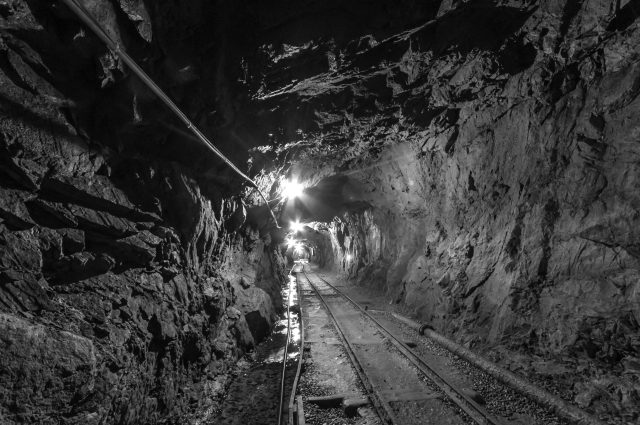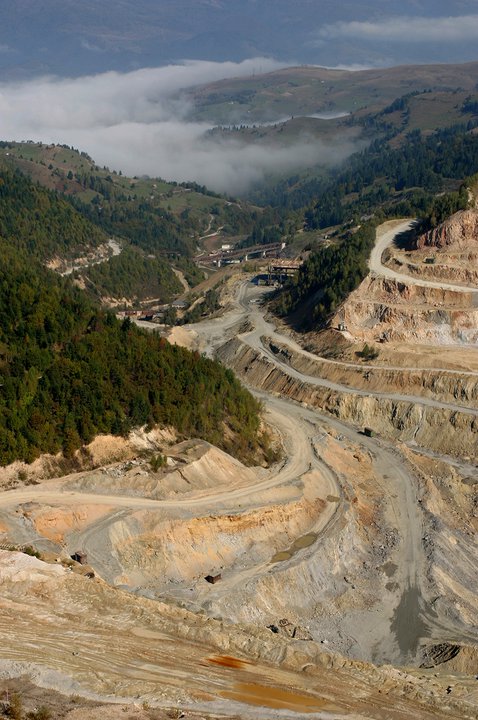
Roșia Montană, located in Romania’s Apuseni Mountains, remains a UNESCO World Heritage Site. The Romanian state has won the case against Roșia Montană Gold Corporation and will no longer be obliged to pay any compensation to the Canadian company.
Gabriel Resources Ltd. and Gabriel Resources (Jersey) have claimed damages in the international arbitration case against Romania over the Roșia Montană gold and other precious materials mining project worth at least $6.7 billion. The international arbitral tribunal ruled on the 8th of March and found in favour of Romania. The International Court of Arbitration of the International Centre for Settlement of Investment Disputes (ICSID) at the World Bank in Washington had the case pending since July 2015 and last September the tribunal hearing the case declared the proceedings closed.
The announcement of this extremely important victory of the Romanian state in a very sensitive case (sensitive because if Romania had lost it would have been obliged to pay the sum of 6.7 billion USD and even to offer the possibility of renewing the exploitation licence for Certej and Roșia Montană) was made by Prime Minister Marcel Ciolacu.
“We won the Roșia Montană trial!!! We fought for Romania because it was unfair that every wage earner and pensioner of this country should be penalised for the villainy of anti-Romanians” Thank you to the team of lawyers who represented Romania with professionalism, honesty and honour! Romanians should not suffer because of the decisions of some prime ministers who put their personal interests above national interests. We did not accept the robbery in the case of anti-covid vaccines, we did not do it now! Bravo, Romania”, wrote Prime Minister Marcel Ciolacu on Facebook as soon as the court decision was made public.
National heritage of world value is not for sale
For his part, former Prime Minister Dacian Cioloș, repeatedly accused of taking irresponsible decisions regarding the Roșia Montană case, including the submission of the dossier for the inscription of Roșia Montană in the UNESCO heritage, argued that national heritage is not for sale.
“Roșia Montană remains a UNESCO World Heritage Site and the Romanian state does not pay any compensation. I hope that those who have accused me in recent years understand that national heritage with world value is not for sale and that it is our duty to protect it honestly, until the end,” former Prime Minister Dacian Cioloș said on his Facebook page.
What does the Tribunal document say?
The decision of the Washington Tribunal in the Roșia Montană case is an international recognition of the citizens’ fight to save the site. They refused to abandon their homes, churches and cemeteries and became an inspiration to an entire generation. The case was argued before the Tribunal by “three amicus curiae”, specialised interventions from Romanian civil society in support of the State, the number of interventions marking a world first in international arbitration. The evidence in the trial revealed that the Roșia Montană mining project never gained the acceptance of the community and society.
The arbitral tribunal decided that the Romanian state should pay the costs of the proceedings.
1. Unanimously rejects the defendant’s objections as to the jurisdiction of the Tribunal and the admissibility of the claims.
2. Dismisses the Claimants’ claims on the merits under the Canada-Romania BIT and under the UK-Romania BIT, Orders the Claimants to reimburse the Respondent for the costs of the arbitration proceedings in the amount of USD 1,437,574.01, together with simple interest at a risk-free rate represented by the interest rate on a US Treasury bill for three months from the date of this award until full payment. Orders the claimants to reimburse the defendant for part of the defendant’s costs in the amounts of EUR 1,154,774.34, RON 30,284,053.32 and USD 928,641.70, together with simple interest at a risk-free rate as represented by the interest rate on a three-month US Treasury bill from the date of this judgement until payment in full. Dismisses all other claims raised by the parties,” the arbitral tribunal’s decision states.
At the beginning of the final decision, when predictions were that Romania would lose the case, the Romanian political class was divided into two camps accusing each other. Finance Minister Marcel Boloș was reportedly told by lawyers just days before that Romania’s chances of winning were minimal and that it would be a miracle if the Washington tribunal ruled in Romania’s favour.
“The lawyers told me that our chances were minimal and that it would be a miracle if we won. Now the miracle has happened and the country has escaped from great trouble”, said Marcel Boloș.
Lawyers representing Romania argued in the trial that Roșia Montană Gold Corporation did not meet the authorisation requirements because it had not obtained a social licence for the mining project.
“This decision puts an end to the arbitration proceedings that were initiated by Gabriel Resources in July 2015. During the course of the arbitration, the parties exchanged over 25 memoranda and participated in two main hearings, one between the 2nd and the 13rd of December 2019, which focused on liability, and one between the 28th of September and the 4th of October 2020, which focused on technical and quantum issues. Gabriel Resources argued in the arbitration that Romania breached the Canada-Romania bilateral investment treaty and the UK-Romania bilateral investment treaty, including the obligation not to expropriate investments without compensation. Romania argued that Roșia Montană Gold Corporation, a consortium between Gabriel Resources and Romanian state-owned Minvest, failed to meet permitting requirements, largely as a result of its failure to obtain a social licence for the mining project. The tribunal took into account the many environmental, social, cultural and economic challenges faced by the mining project, finding that the Romanian authorities had “fulfilled their regulatory mandate to the best of their ability under these difficult circumstances. After rejecting Gabriel Resources’ claim that Romania had breached the two bilateral investment treaties, the tribunal did not proceed to examine the parties’ arguments on the amount of damages. The Arbitral Award will be published on the website of the International Centre for Settlement of Investment Disputes at the World Bank (ICSID/CIRDI) once the confidential information is anonymised in the award, as was the press release issued by the legal team representing Romania.
The Roșia Montană project and related controversies
Roșia Montană, located in Romania’s Apuseni Mountains, has a rich mining history dating back over two millennia. However, in recent decades, the mining operation at Roșia Montană has been the subject of intense debate and controversy. This discussion focuses in particular on the mining project proposed by the Canadian company Gabriel Resources, which has generated strong reactions both nationally and internationally. The earliest evidence of mining dates back to Roman times. However, gold resources in the area were exploited more intensively in the mediaeval period and during Habsburg rule. In the late 19th and early 20th centuries, mining experienced significant growth, influencing and shaping the local community and socio-economic landscape.

Gabriel Resources’ proposed mining project has sparked widespread debate and protests both at home and abroad. One of the most controversial aspects of the project is the use of cyanide to extract gold from the ore, a technique that raises serious concerns about its impact on the environment and public health. Concerns about the destruction of a particularly important archaeological site have also sparked discontent among activists and citizens concerned about the preservation of cultural heritage. Mining at Roșia Montană would have a significant impact on the environment. The use of cyanide in gold mining poses major risks to the ecosystem, potentially affecting water quality and aquatic life. Also, the deforestation needed to expand mining activities would lead to loss of biodiversity and major changes in the natural landscape of the area. The debate on mining at Roșia Montană is not just about the environmental impact. There are also concerns about the social and economic effects of the project. Some argue that mining would bring significant economic benefits, including job creation and boosting the local economy. In contrast, others warn of the risk of local community collapse as well as long-term dependence on the mining industry, susceptible to economic fluctuations and resource depletion.



 Subscribe
Subscribe